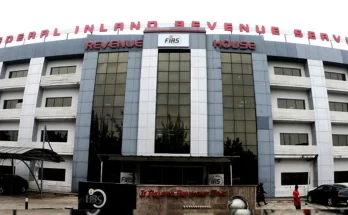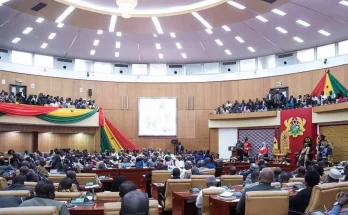- The Federal Government of Nigeria through the Federal Inland Revenue Service, FIRS decides to offer a whopping ₦16tn as a tax waiver for selected companies.
- On the flip side, the FIRS denies involvement in granting the waivers.
The Nigerian Government has forgiven N16.76tn in revenue to tax reliefs and concessions given to big companies between 2019 and 2021.
According to the tax expenditure statement (TES) reports in the Medium-Term Expenditure and Fiscal Strategy documents posted on the website of the Budget Office of the Federation, the year 2021 ended with 46 companies profiting from several tax incentives and duty waiver schemes provided by the government, while the requests of 186 companies were still awaiting approval.
This particular report deals with revenue forgiven on Company Income Tax, Value Added Tax, Petroleum Production Tax, and Customs Duty.
In the report for 2019, it was indicated that the government had forgiven revenue of N4.2tn from two main sources; CIT with an estimated amount of N1.1tn, and VAT with an amount of N3.1tn.
The report further stated that the preliminary estimate of revenue forgiven from CIT incentives and concessions in 2019 is N1.1tn; in contrast, 2019 CIT collections were N1.6tn. The preliminary estimate of revenue forgiven from VAT policy choices and compliance gaps is estimated to be NGN 3.1tn and could be more.
It is worth restating that revenue forgiven from Customs Duty, Excises, Petroleum Production Tax, Personal Income Tax, and concessions under the Oil and Gas Zones legislation is still to be computed.
According to the TES report, the figure for revenue forgiven would probably go beyond N4.2tn if there were enough data, especially from Customs Duty, Excises, PPT, Personal Income Tax, and concessions under the Oil and Gas Zones legislation.
By 2020, the figure increased to N5.8tn, with most of it coming from revenue forgiven under VAT. An analysis showed that N4.3tn was forgiven under VAT; N457bn under CIT; N307bn under PPT, and N780bn under customs duty.
It was also indicated that five countries accounted for about 86% of total customs relief, with China accounting for nearly two-thirds of total relief granted. Netherlands, Togo, Benin, and India were the other top sources of supplies prospering from the reliefs.
The total figure continued to grow in 2021, hitting N6.79tn, with revenue forgiven on VAT accounting for most of it.
Analysis indicated that N3.87tn was forgiven under VAT, N548.40bn under CIT; N337.70bn under PPT; N1.84tn under customs duty; and N111.15bn under imports VAT.
For the three years, therefore, the Federal Government had to forgive a total of N16.79tn in tax reliefs, Customs duty waivers, and concessions.
Under this figure, tax exemptions covered imported goods covered by diplomatic privileges, military hardware, fuels and lubricants, and hospital and surgical equipment among others.
Meanwhile, companies that benefitted from the tax reliefs and concessions included Dangote, Lafarge, Honeywell, and 43 others.
According to the Q4 2021 PSI report released by the Nigeria Investment Promotion Commission, these companies were beneficiaries of the pioneer status tax relief under the Industrial Development Income Tax Act with tax reliefs for three years.
The pioneer status is an incentive given by the Federal Government, which excuses companies from paying income tax for a certain period. This tax exemption can be full or partial and the incentive is generally regarded as an industrial measure intended for promoting investments in the economy.
It should be noted, however, that the products or companies qualified for this pioneer status are those that do not already exist in the country.
Tax Waiver in Nigeria: FIRS Denies Involvement
Responding to the report making the rounds, the FIRS through its Executive Chairman, Muhammad Nami, has denied its involvement in granting the waiver as its core responsibility as a government agency only stops at tax collection and not granting waivers.
Professional Opinion on Tax Waivers
Economic specialists have emphasized the role of tax waivers in propelling economic growth but queried the transparency and unbiased rate of the Federal Government in awarding the tax waivers.
According to the Managing Director/Chief Executive Officer, Cowry Asset Management Limited, Mr. Johnson Chukwu, what was forgiven could not be seen as revenue leakages, depicting it as delayed gratification which would help the Federal Government to accomplish long-term higher revenues.
He said that Tax is a fiscal tool and fiscal tools are used to facilitate economic activities or deter certain toxic or improper economic activities.
He emphasized that there were benefits that would accrue from approving these waivers, pointing out that they would facilitate the economy.
However, some experts believe that tax reliefs and waivers approved by the government were prejudiced, commenting that some of the processes were not transparent enough.
According to one of the past presidents of the National Accountants of Nigeria, Dr. Sam Nzekwe, there was a need for the process of awarding certain tax reliefs, import duty waivers, and concessions to be transparent.
Also weighing in on the issue is a Professor of Economics at the Nnamdi Azikiwe University, Uche Nwogwugwu who found such waivers to be generally discriminatory.
He said that they fulfill an economic theory that says that the rich man should not be taxed to provide jobs for the poor man. If the rich were taxed, the poor would not get jobs, that is what is being applied, which is an unfavorable economic theory.



